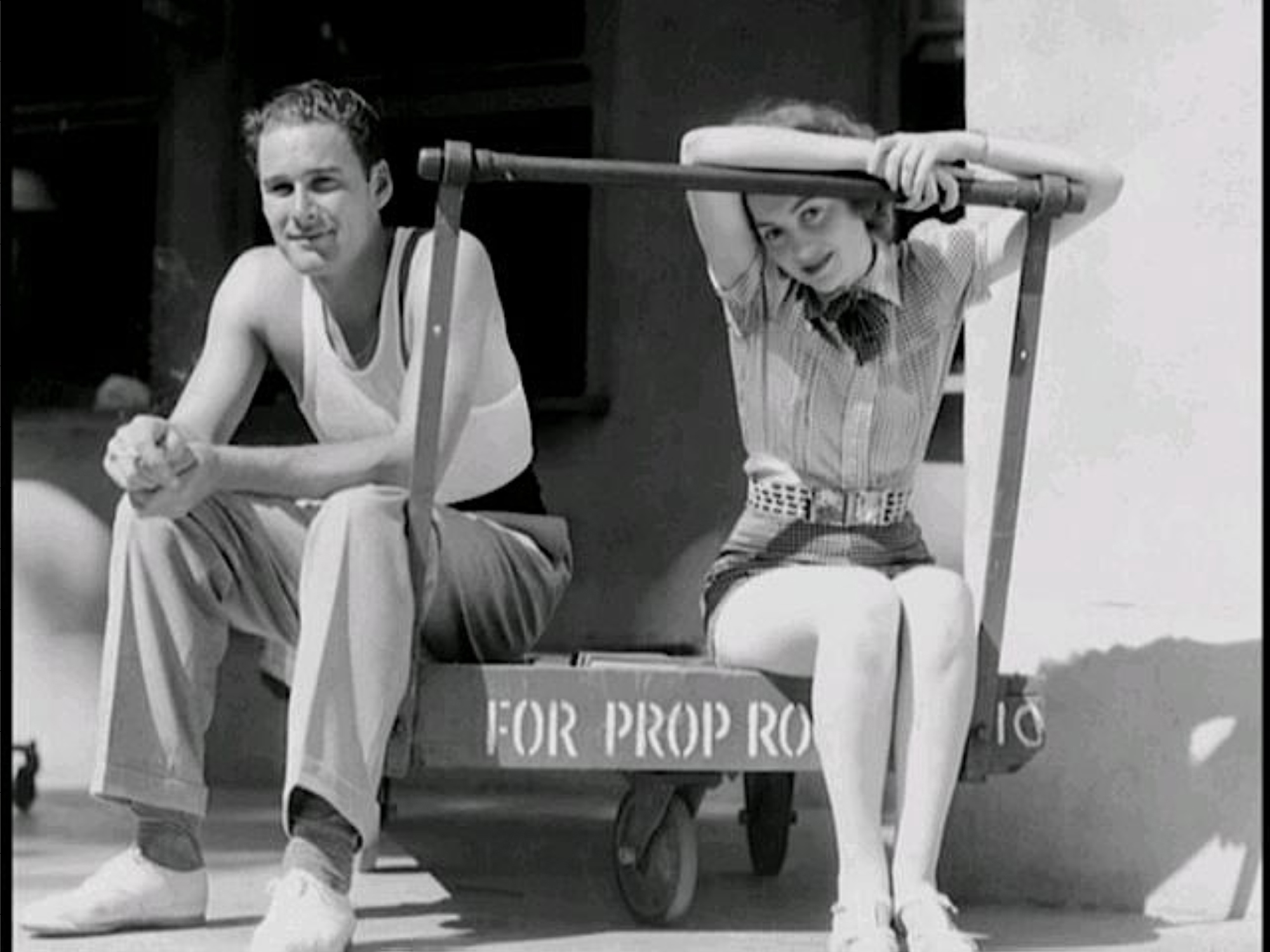
In the 2005 Turner documentary, The Adventures of Errol Flynn, Olivia de Havilland recorded a series of reminiscences about Flynn, including the recounting of an episode that took place soon after they first met: “He sat down, and he said to me, 'What do you want out of life? And so I said, 'Well, I want respect for difficult work well done.' And then I said to him, 'What do you want out of life?' And he said, 'I want success.' And by that he meant fame and riches. And I thought, 'That’s not enough.'”<?xml:namespace prefix = o ns = “urn:schemas-microsoft-com:office:office” />
In Olivia’s mind, Errol wanted one thing, and she wanted another. By implication his desires were material and hers were artistic; his were wrong, and hers were right. His were “not enough.” What she doesn’t account for is that Errol Flynn had by 1935 at age 26 already graduated from the school of hard knocks, getting by on equal parts charm, looks, and guile. Despite her harsh upbringing in stepfather G.M. Fontaine’s home, she had not spent much time out in the world. As has been well documented, particularly in John Hammond Moore’s excellent The Young Errol, Flynn had kicked around Australia and New Guinea working at various jobs for years—dozens of jobs, in fact. His failure in these jobs might have had less to do with character deficiencies than always assumed by his biographers, and more to do with a condition that might today be diagnosed as ADHD. Sometimes, just maybe, this disability set him up to fail. Flynn was always getting fired, although on one occasion when he managed a copra plantation, it may have been a conspiracy by area farmers against the “new kid in town” that led to his failure. These experiences gave Flynn a hard, cynical veneer that prepared him for what was, in his mind, the inevitability of losing this gig as an actor just like he had lost all the others. Proof of this can be found in his early, constant griping to the press that he might just chuck it all and return to the South Seas. He figured he ought to quit the business before the business quit him.
Olivia, on the other hand, had survived a militaristic existence at home in Saratoga, California, as described by Olivia's sister Joan Fontaine in the memoir, No Bed of Roses. Olivia, the older sister, had been forced to become the poised, well-read, and well-spoken young lady who hit the screen at age 18. In response to her harsh home environment, she had by necessity become an intense loner and a person who sought the control as an adult that she had been denied as a child and adolescent. But she had not, and would not ever, wait tables like the typical struggling actor and have to cope with a variety of bosses with different work styles and temperaments. In other words, she didn’t know what she didn’t know, and when Flynn made his statement about wanting fame and fortune, it struck de Havilland as capricious when it was in fact the product of many ego blows that accompanied each pronouncement, “Flynn, you’re fired!”
I discovered a thousand and one things about Errol and Olivia that I didn’t know. Learn about all of them in Errol & Olivia: Ego & Obsession in Golden Era Hollywood, coming in October 2010 from GoodKnight Books.
— Robert Matzen
